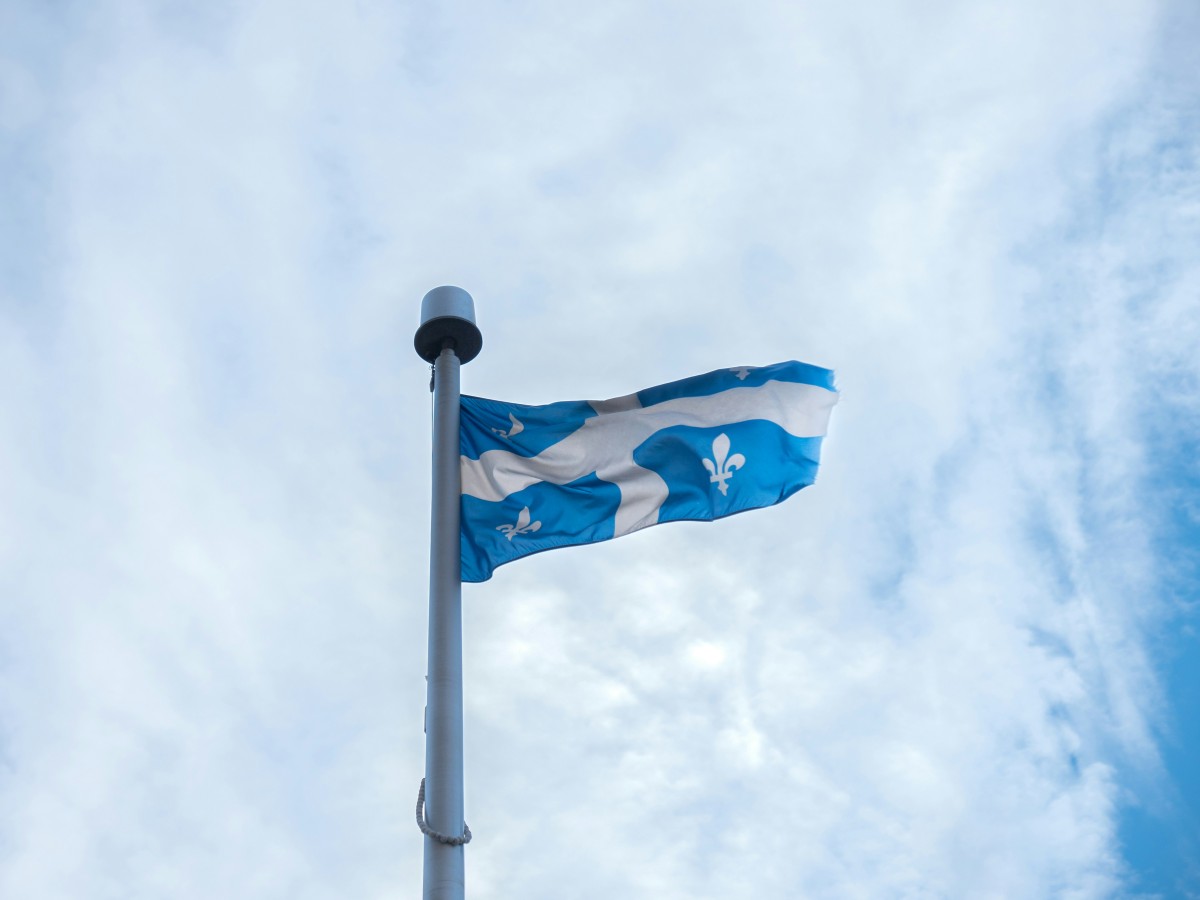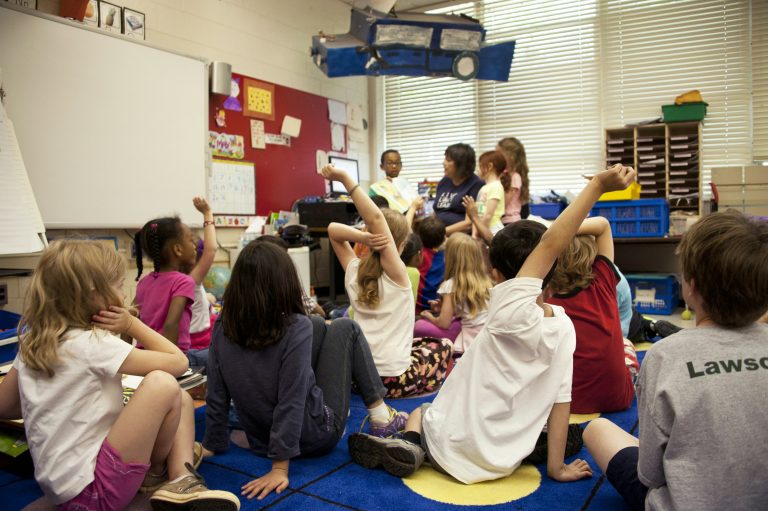Moving to Québec with Children: 5 Things What I Wish I Had Known
Moving to Montréal with no local info? Been there.
When I moved to Québec during my second trimester, I had no idea what I was walking into. I thought I was just moving to a part of Canada, but I quickly learned that Montréal—especially the east side near Parc Maisonneuve, where we first lived—was a whole new world of French signs, French-speaking neighbours, and very little English support.
At the time, I didn’t know that the city had invisible language borders. In general, the more west you go in Montréal, the more English you’ll hear. But in the east, French dominates. That makes a huge difference if you’re still learning the language or don’t speak it at all.
So if you’re moving to Québec—especially with children—here are a few things I wish someone had told me:
1. Don’t Just Look at Rent—Look at the Language
Sure, budget matters. But so does the neighbourhood’s primary language. Especially moving to Québec with children? You’re not yet confident in French? Try looking at areas like NDG, Côte-Saint-Luc, or parts of the West Island in Montréal, where English is more commonly spoken. On the other hand, places like Rosemont, Hochelaga, and Villeray are more francophone.
Extra Tip: Housing Realities (The July 1st Rush)
When looking for a place, be prepared for Quebec’s unique moving culture. July 1st is the official moving day, which means most leases start and end on this date. If you move outside of this period, your options might be fewer, and you’ll often be taking over someone else’s lease.
When checking apartments (especially older ones), always ask if heating and hot water are included (chauffage/eau chaude inclus). If they aren’t, your winter electricity bill can skyrocket, easily offsetting a lower rent price!
2. Facebook Groups Are Gold
Yes, I know—we’re all trying to use less social media, but hear me out. In Québec, especially for moms, Facebook is one of the best sources for local knowledge and kids’ activities. Join groups like Montréal Moms, Moms in South Shore, or even neighbourhood-specific ones like Rosemont en Famille or South Shore Parents. These groups are full of moms who’ve been through the same thing—immigration, daycare searches, pregnancy care, and more. Just search the name of your neighbourhood + “parents” or “mamans” and you’ll find something.
3. Child Car Seats Are Serious Business
If you’re bringing your child or giving birth here, make sure that you understand Québec’s strict car seat laws. Children must ride in a car seat that matches their age, weight, and height. The SAAQ (Société de l’assurance automobile du Québec) provides detailed guidelines:
👉 Car Seat Rules in Québec (SAAQ)
Many newcomers are surprised to learn that incorrect installation or outdated models can get you fined, even if you’re just doing a short drive from the airport.
4. Language Barrier in Parenting
The Real Language Barrier: Not Just at the Store
Getting around the city with limited French is manageable, but the real difficulty hits when dealing with your children’s needs. The vast majority of public health services (CLSC), paediatricians, and school administrators operate solely in French.
My Tip: When making an important call (like a doctor’s appointment or a RAMQ query), write down your key phrases in French beforehand. Use apps like Google Translate to quickly clarify things during phone calls or at the pharmacy. More importantly, don’t be afraid to ask for “quelqu’un qui parle anglais, s’il vous plaît” (someone who speaks English, please), but be patient. A willingness to try even basic French goes a long way and will earn you goodwill from the community.
Free French Classes from the Government
The Québec government offers free French language courses for newcomers. Whether you prefer online or in-person, there are programs designed for stay-at-home parents, workers, and even evening learners:
👉 Learn French with Québec Government
👉Related Post : Learning French in Québec
I took the part-time course while raising my baby, and it made a big difference—even just knowing how to talk to a receptionist or pharmacist helped me feel more independent.
5. Essential First Steps for Newcomers
If you’re new to Canada or Québec, here’s a basic checklist to handle within the first few weeks:
- Apply for your RAMQ health card
- Register your child for healthcare
- Apply for child benefits (CCTB / Allocation familiale)
- If you plan to work or study, apply for a SIN (Social Insurance Number)
- Sign up for childcare waiting lists via La Place 0-5
- Find a family doctor or CLSC (local health center)
- Open a Bank Account Early
- Opening a bank account is one of the first things you’ll need to do after arriving in Québec. It’s necessary for receiving child benefits, paying rent, and setting up your phone or utility bills. Thankfully, many banks offer newcomer packages that come with fee waivers and bonuses.
👉 I’ve written a full guide on this with my personal tips and referral codes — check out 5 Best Bank Accounts in Canada for Newcomer Moms (with bonuses & tips!) to make your choice easier and possibly save some money along the way!
- Opening a bank account is one of the first things you’ll need to do after arriving in Québec. It’s necessary for receiving child benefits, paying rent, and setting up your phone or utility bills. Thankfully, many banks offer newcomer packages that come with fee waivers and bonuses.
Extra Tip: Tapping into Local Savings
Québec offers generous child benefits (Allocation familiale), which are paid out monthly and are vital for family budgeting. Ensure you apply immediately after getting your RAMQ card and SIN.
On a daily basis, look for ways to reduce your grocery bills. Many major grocery chains, like Maxi and Provigo, offer price matching (matching a competitor’s lower price). As newcomer families often face high initial costs, learning these local savings tricks early can significantly stretch your budget. Don’t forget to link your loyalty cards (like the PC Optimum or Moi programs) to maximize cashback!
6. The Québec Winter: It’s a Marathon, Not a Sprint❄️
If you are moving from a warmer climate, nothing prepares you for a Québec winter. It is long, harsh, and requires mental preparation, especially when raising young children.
Winter Gear is an Investment: Don’t skimp on quality winter clothing. Invest in a good snowsuit, mittens (mitts are better than gloves for kids!), and warm boots for your children—brands like Gusti or Kamik are popular here. The cold isn’t just uncomfortable; it can be dangerous.
The Importance of Indoor Activities: Since you can’t be outside all day, know your local options. Look for indoor play spaces (Cafés-jeux), free activities at the local library (Bibliothèque), or sign up for swimming lessons early. This is crucial for your sanity and your children’s development during the long, dark months. Remember, the goal isn’t just to survive winter, but to actively enjoy it!
🌿Final Thought: You’ll Figure It Out — One Small Win at a Time
Looking back, I wish someone had sat me down and explained all this over coffee. So, if you’re reading this and about to move to Québec, or just got here, know that you are not alone. It’s a beautiful place to raise a family, but it takes time, patience, and yes… a little French.
I’m not a professional immigration consultant—just a fellow mom who’s been through the process. I hope my experience can offer you some comfort and useful tips.
✨ Wishing you all the best on your new journey in Québec! Bonne chance!






